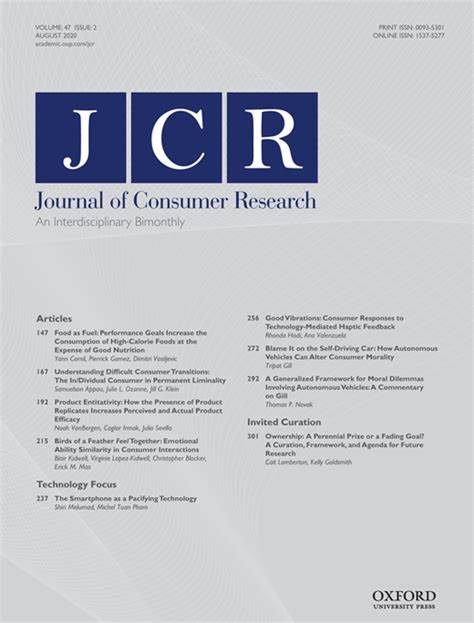Unveiling the Mind of the Machine
IF 6.4
1区 管理学
Q1 BUSINESS
引用次数: 0
Abstract
Previous research has shown that consumers respond differently to decisions made by humans versus algorithms. Many tasks, however, are not performed by humans anymore but entirely by algorithms. In fact, consumers increasingly encounter algorithm-controlled products, such as robotic vacuum cleaners or smart refrigerators, which are steered by different types of algorithms. Building on insights from computer science and consumer research on algorithm perception, this research investigates how consumers respond to different types of algorithms within these products. This research compares high-adaptivity algorithms, which can learn and adapt, versus low-adaptivity algorithms, which are entirely pre-programmed, and explore their impact on consumers’ product preferences. Six empirical studies show that, in general, consumers prefer products with high-adaptivity algorithms. However, this preference depends on the desired level of product outcome range—the number of solutions a product is expected to provide within a task or across tasks. The findings also demonstrate that perceived algorithm creativity and predictability drive the observed effects. This research highlights the distinctive role of algorithm types in the perception of consumer goods and reveals the consequences of unveiling the mind of the machine to consumers.揭示机器的思想
之前的研究表明,消费者对人类和算法做出的决定的反应不同。然而,许多任务不再由人类执行,而是完全由算法执行。事实上,消费者越来越多地遇到由算法控制的产品,如机器人真空吸尘器或智能冰箱,它们由不同类型的算法控制。基于计算机科学和消费者对算法感知的研究,本研究调查了消费者对这些产品中不同类型算法的反应。本研究比较了可以学习和适应的高自适应算法与完全预编程的低自适应算法,并探讨了它们对消费者产品偏好的影响。六项实证研究表明,总体而言,消费者更喜欢具有高自适应算法的产品。然而,这个首选项取决于产品结果范围的期望级别——一个产品在一个任务内或跨任务提供的解决方案的数量。研究结果还表明,感知算法的创造力和可预测性驱动了观察到的效果。这项研究强调了算法类型在消费品感知中的独特作用,并揭示了向消费者揭示机器思想的后果。
本文章由计算机程序翻译,如有差异,请以英文原文为准。
求助全文
约1分钟内获得全文
求助全文
来源期刊

Journal of Consumer Research
BUSINESS-
CiteScore
12.00
自引率
9.70%
发文量
53
期刊介绍:
Journal of Consumer Research, established in 1974, is a reputable journal that publishes high-quality empirical, theoretical, and methodological papers on a wide range of consumer research topics. The primary objective of JCR is to contribute to the advancement of understanding consumer behavior and the practice of consumer research.
To be considered for publication in JCR, a paper must make a significant contribution to the existing body of knowledge in consumer research. It should aim to build upon, deepen, or challenge previous studies in the field of consumption, while providing both conceptual and empirical evidence to support its findings.
JCR prioritizes multidisciplinary perspectives, encouraging contributions from various disciplines, methodological approaches, theoretical frameworks, and substantive problem areas. The journal aims to cater to a diverse readership base by welcoming articles derived from different orientations and paradigms.
Overall, JCR is a valuable platform for scholars and researchers to share their work and contribute to the advancement of consumer research.
 求助内容:
求助内容: 应助结果提醒方式:
应助结果提醒方式:


